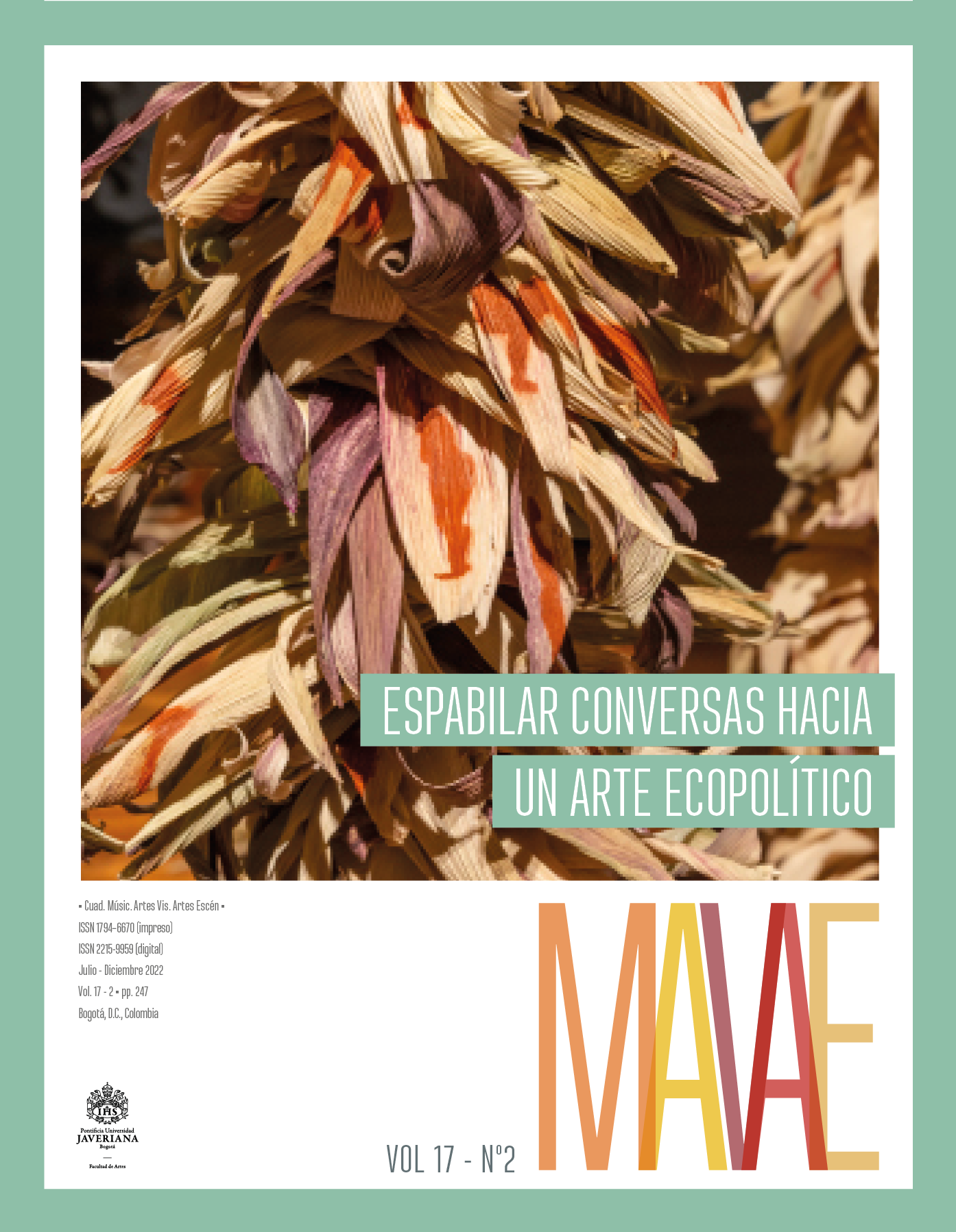Resumen
Esta investigación es la reunión de una serie de procesos que llevo trabajando y reflexionando desde hace años acerca de la cuenca del río Tunjuelito, al sur de Bogotá, en la localidad de Bosa. La premisa surge desde mi interés por saber más del entorno donde pasé mi infancia; una historia que alguna vez oí sobre el Tunjuelito cuando estudiaba en el colegio, de alguna forma, despertó una visión diferente de como estuve acostumbrado. Todo lo que se sabe del Tunjuelito, antes que empezara a ser registrado en documentos oficiales para realizar obras en la ciudad, con el objetivo de suplir de agua a una creciente población, es precaria, y quienes atestiguaron su esplendor se fueron sin poder heredar sus relatos, voces perdidas entre un olvido que ha sido por siglos un programa político local y del mundo contemporáneo. En Colombia, el problema más grande que aflige las posibilidades de algún día lograr ese proyecto de nación equitativa pasa por las crisis ambientales que atravesamos actualmente, consecuencia de políticas explotativas abusivas y una cultura forjada durante décadas de violencia que ha normalizado la muerte, el hiperindividualismo y que no se siente responsable del estado de su ambiente. Un desarraigo que lo han sufrido de la peor forma los ríos y otros cuerpos de agua. El objetivo principal es hablar del Tunjuelito tal y como lo recuerdo, indagar cómo pudo ser antes que se convirtiera en el vertedero que es ahora, ver en una escala nacional cómo es con otras fuentes hídricas y lo que podrían volver a ser y significar
Agamben, Giorgio. 2010. Ninfas. Valencia: Pre-textos.
Baptiste, Brigitte. 2019. Introducción a Nuestro planeta, nuestro futuro, de Manuel Rodríguez Becerra, 11-19. Barcelona: Debate, 2019.
Baptiste, Bridgitte. 2019. “Volver a la ecología”. En Nuestro planeta, nuestro futuro, de Manuel Rodríguez Becerra, 11-19. Bogotá: Debate.
Cagüeñas, Diego, María Isabel Galindo Orrego y Sabina Rasmussen. “El Atrato y sus guardianes: Imaginación ecopolítica para hilar nuevos derechos”. Revista Colombiana de Antropología 56, nº 2 (2020): 169-196. https://doi.org/10.22380/2539472x.638.
Comisión de la Verdad. 2021. “Manifiesto a Colombia sobre la verdad del río Magdalena”. https://comisiondelaverdad.co/actualidad/ noticias/manifiesto-a-colombia-sobre-la-verdad-del-rio- magdalena#:~:text=El%20’Manifiesto%20a%20Colombia%20 sobre%20la%20verdad%20del%20rio%20Magdalena,al%- 20buen%20vivir%20de%20las
Gómez Londoño, Ana María, ed. 2005. Muiscas: Representaciones, cartografías y etnopolíticas de la memoria. Bogotá: Pontificia Universidad Javeriana.
Osorio Osorio, Julián Alejandro. 2007. El río Tunjuelo en la historia de Bogotá, 1900-1990. Bogotá: Alcaldía Mayor de Bogotá. https:// www.culturarecreacionydeporte.gov.co/sites/default/files/adjuntos_ paginas_2014/1.3.3_rio_tunjuelito_baja.pdf
Rodríguez Becerra, Manuel. 2019. Nuestro planeta, nuestro futuro. Bogotá: Debate.
Sagan, Carl. 1985. Cosmos. Barcelona: Planeta.
Salazar, Manuel. 2002. “Continúa drama de tres mil personas por desbordamiento de río en Bogotá”. https://caracol.com.co/radio/2002/06/09/nacional/1023573600_107180.html.
Tolkien, J. R. R. 1999. Árbol y hoja. Barcelona: Minotauro.
Valencia, José Luis. 1991. “El río Cauca también es una tumba”. El Tiempo, 19 de enero. https://www.eltiempo.com/archivo/documento/ MAM-12187#:~:text=El%20r%C3%ADo%20arrastra%20un%20 cad%C3%A1ver,escena%20que%20se%20volvi%C3%B3%20 cotidiana.

Esta obra está bajo una licencia internacional Creative Commons Atribución 4.0.


